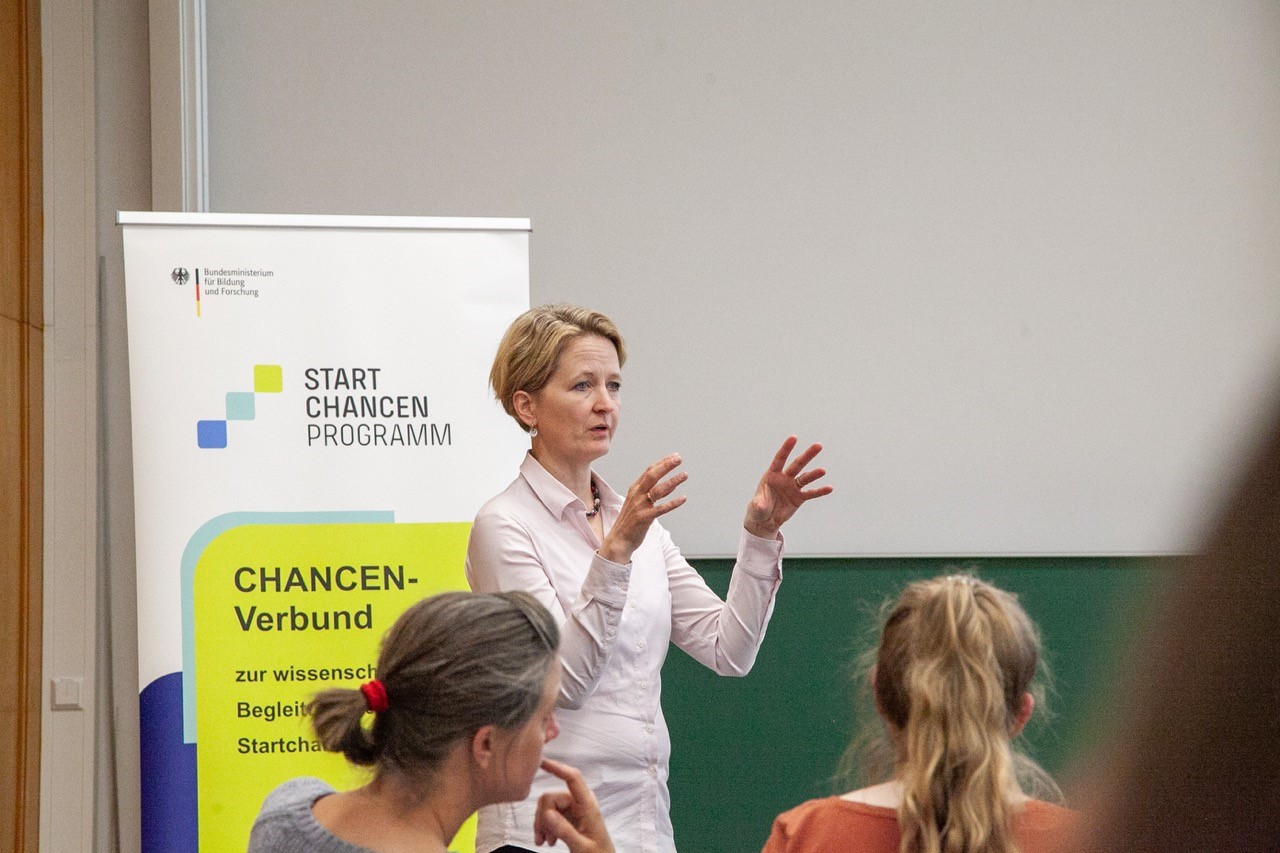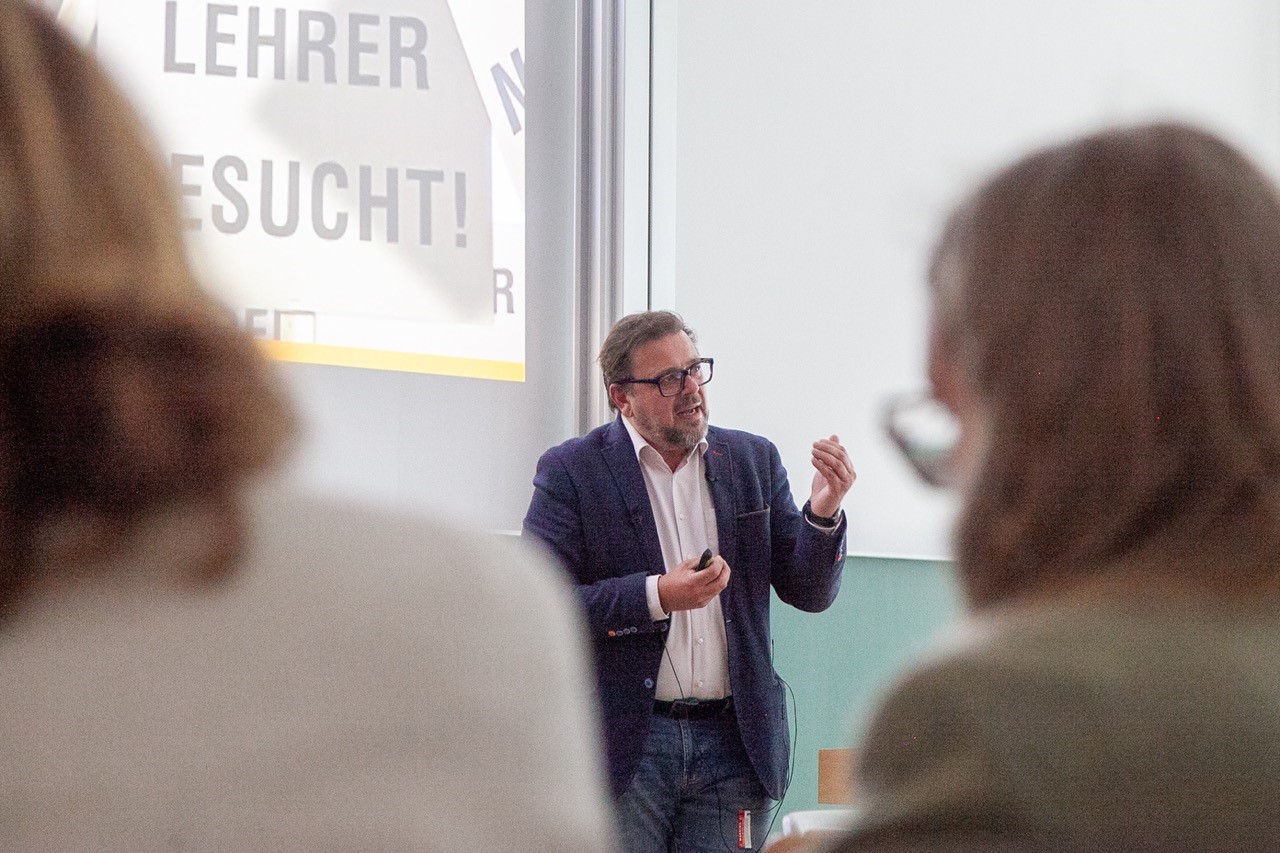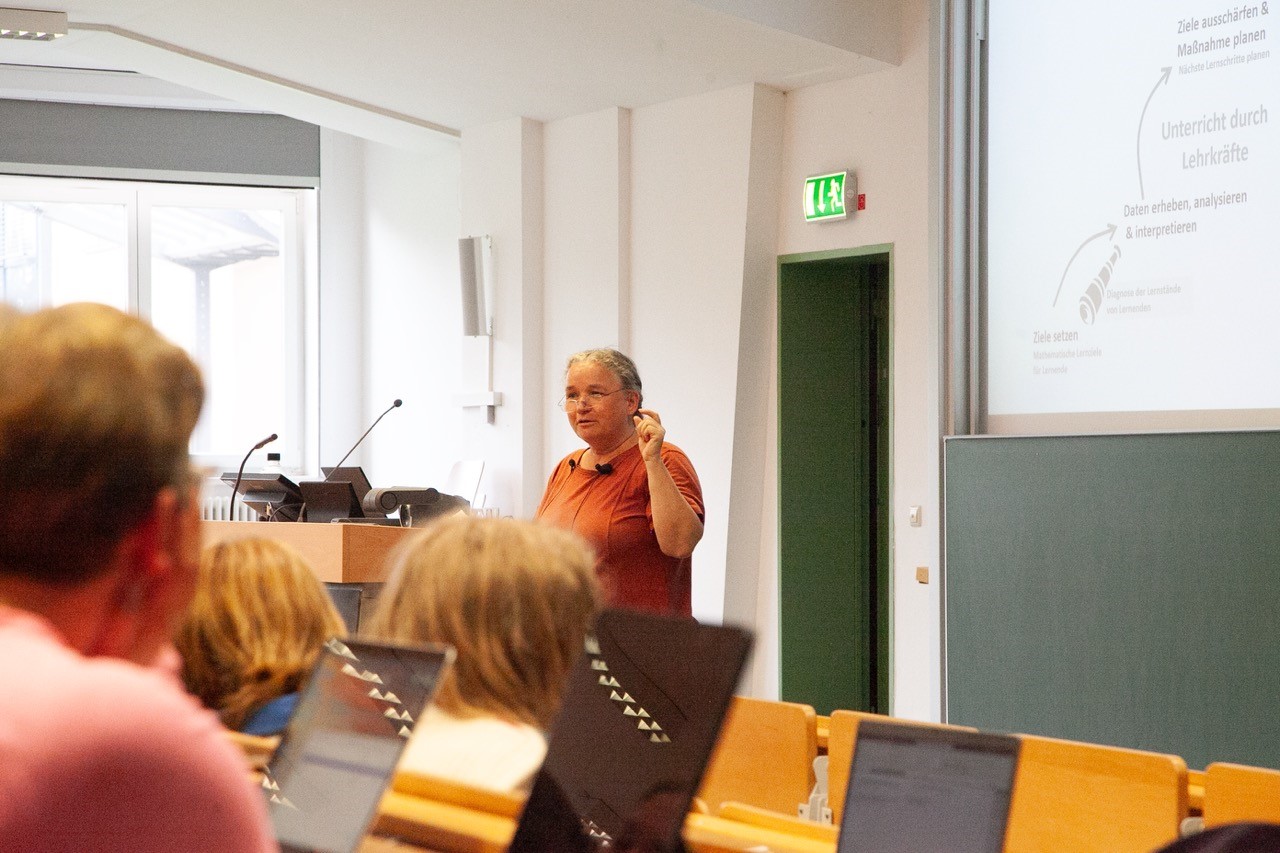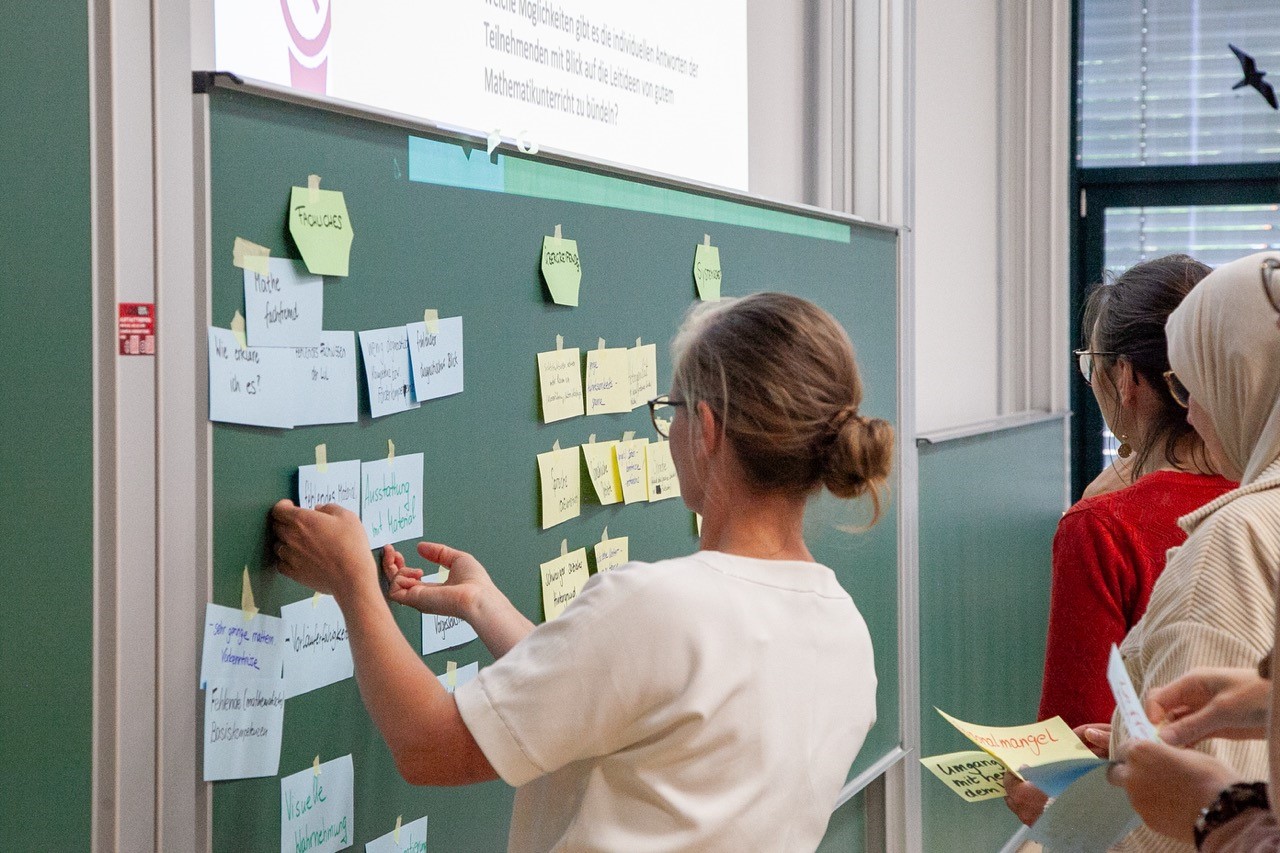Federal states working together for opportunities in math: Startchancen Competence Center for mathematics launched

The Startchancen Competence Center for mathematics experienced a highly successful kick-off to its work for better equality of opportunity in math across the German states when, between May 22 and 24, 2025, a total of 119 committed specialists from fifteen states came together for the first Germany-wide event for program coordinators and ambassadors at the Golm campus of the University of Potsdam. The spectrum of attendees reflected the event’s impressive reach; 57 program ambassadors and speakers, 29 coordinators and leads from the various federal states, 30 members of the DZLM (German Centre for Mathematics Teacher Education) network, and three guests from the Federal Ministry of Research, Technology and Space (BMFTR) and the Startchancen alliance came to Potsdam for three intense days of work and dialogue.
The event’s keynote speakers provided an inspiring frame for the discussions. Giving the opening address, Prof. Dr. Susanne Prediger shared foundational findings on how to ensure that children acquire and retain basic and core math skills. Prof. Dr. Kai Maaz, Executive Director of the Leibniz-Institute for Research and Information in Education (DIPF), offered valuable input for implementing the program from an educationalist’s perspective and in the context of systematic school improvement. Prof. Dr. Daniela Götze outlined the “five principles of good mathematics teaching,” while Merle Thielmann highlighted significant future prospects for the improvement of teaching informed by data and digital infrastructure for this.
The event’s multi-faceted agenda encompassed specific workshops for the various phases of schooling and ideas labs such as “Math across the school day and in the transition from daycare to elementary school” (Prof. Dr. Marcus Nührenbörger), “Using data to inform the development of teaching” (Prof. Dr. Bettina Rösken-Winter and Dr. André Henning), and “VERA 8 [a comparative study of eighth-graders’ math skills] and other assessment instruments in the first stage of secondary schooling” (Prof. Dr. Gilbert Greefrath). Particular foci of the event entailed reflecting on the program’s modules in the context of CPD and considering tailored channels of communication and networking for those involved in delivering the program.



The Startchancen Competence Center in Mathematics is part of the Chancen-Verbund and is funded by the Federal Ministry of Research, Technology and Space, previously the Federal Ministry of Education and Research (BMBF). The Leibniz Institute for Science and Mathematics Education (IPN) is its coordinating institution, while it is based at the German Centre for Mathematics Teacher Education (DZLM). In the next seven years, it will create topic-related modules for various different types of school. The conference was successful in laying foundations for communication and collaboration across federal states around data-informed strategies for supporting mathematics education and marked the commencement of CPD for program ambassadors.
The Competence Center brings together the expertise of six higher education institutions: TU Dortmund University, Osnabrück University, the University of Münster, Paderborn University, the University of Education Freiburg, and the event’s host institution, the University of Potsdam.









